UP IHR Co-organizes a Legal Forum on SOGIESC in the Asia-Pacific Region
In light of the celebration of International Day Against Homophobia, Biphobia, and Transphobia (IDAHOBT), the UP Law Center Institute of Human Rights (UP IHR) and the Gender Law and Policy Program (UP GLPP) organized a Legal Forum on the Status of Recognition of the Rights of Persons with Diverse Sexual Orientation, Gender Identity and Expression, and Sex Characteristics (SOGIESC) in the Asia-Pacific Region on 16 May 2024. The event was in partnership with the Asian Development Bank (ADB), the Ateneo de Manila School of Law, the Integrated Bar of the Philippines (IBP), and the Commission on Human Rights (CHR).
The legal forum highlighted the significant challenges faced by the Asia-Pacific region in advancing the rights of the LGBTQIA+ community, marked by slow legislative progress and societal opposition. It featured welcoming remarks by Dean Darlene Berberabe and Mr. Francesco Tornieri, and a keynote speech by Victor Madrigal-Borloz, former UN Independent Expert on SOGIE and Harvard Law School graduate. A panel discussion chaired by Professor Elizabeth Aguiling-Pangalangan, Director of the Institute of Human Rights at the UP Law Center, and co-chaired by Assistant Professor Michael T. Tiu, Jr., Head of the Information and Publications Division of the UP Law Center, brought together experts like Senior Justice Hari Prasad Phuyal from the Supreme Court of Nepal, Mr. Chattaraphon Ditthasriphon, Justice Officer of the International Women Rights Division of the Ministry of Justice in Thailand, Mr. Aritha Wickramasinghe, Legal Advisor of the President’s Office of Sri Lanka, Ms. Lawying Honey Lyster, Programme Specialist in LGBTI+, HIV, and Health of the UNDP, and Atty. Jazz Tamayo of the Alternative Law Groups, who discussed the region’s legal and social landscape for LGBTQI+ rights.
The discussions highlighted several key issues, including the slow progress of legislative measures such as the SOGIE Equality Bill and the prevalence of tokenistic ordinances that lack proper implementation and funding. The Falcis case was a focal point, where the challenge of the restrictive definition of marriage in the Family Code was dismissed on procedural grounds. The panelists stressed the need for legislative changes as well as effective policy execution and societal acceptance to ensure that these laws are respected and enforced.
The forum also delved into the intersectional issues faced by different segments of the LGBTQI+ community. Jeff Cagandahan of Intersex Philippines, Arjhay Puod of the Pioneer Filipino Transgender Men Movement, and Romielyn Nazareno of GALANG Philippines provided valuable perspectives on the specific challenges they encountered. They discussed the lack of protective laws for intersex individuals, the stigma against transgender people due to discrepancies between legal and lived names, and the overall lack of gender identity recognition in government forms. The speakers emphasized the necessity for inclusive policy design that involves the community directly, advocating for a “Bibingka model” where grassroots participation ensures that the policies reflect the real needs and experiences of those affected.
Statements of commitment from Associate Professor Evelyn (Leo) D. Battad, Program Director of the Gender Law and Policy Program of the UP Law Center, Atty. Antonio C. Pido, President of the Integrated Bar of the Philippines, and Commissioner Faydah Maniri Dumarpa, the focal Commissioner for Gender of the Commission on Human Rights, underscored the importance of continuous advocacy and legal reform. The closing message from Dean Jose Maria G. Hofileña of the Ateneo de Manila School of Law reinforced the call for inclusive and effective advocacy. He highlighted the need for continued efforts to push for legislative change, judicial support, and societal acceptance to ensure that the rights and protections for the LGBTQIA+ community are not only recognized but also actively upheld. The event underscored the importance of a multifaceted approach to advancing LGBTQIA+ rights, involving legal reforms, effective implementation, and societal engagement to create a more inclusive and equitable future for all.

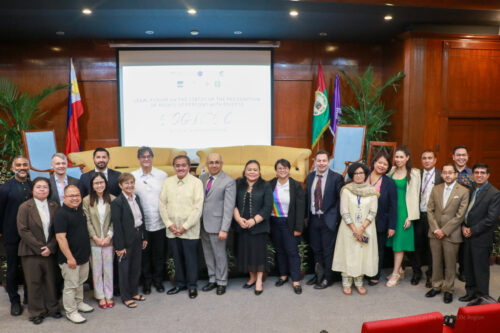
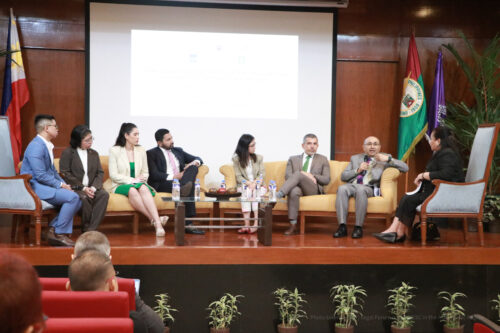
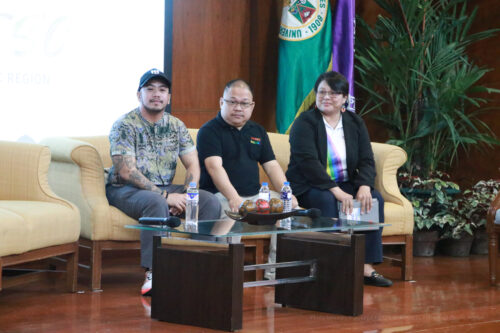
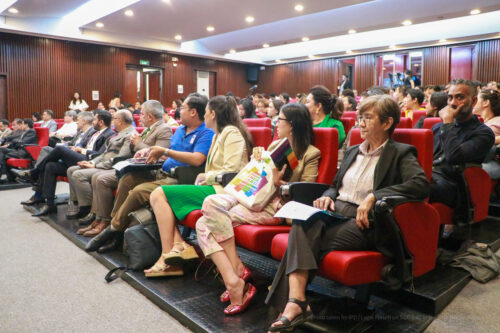
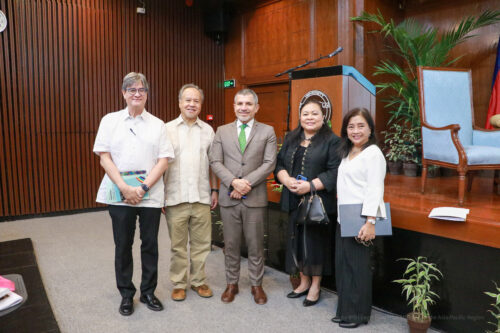
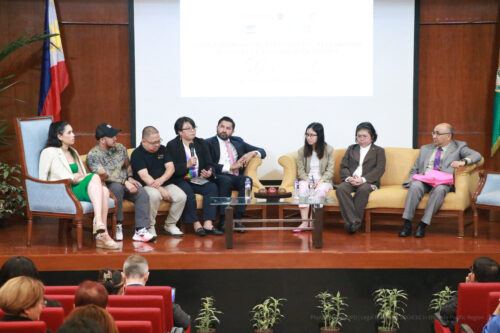
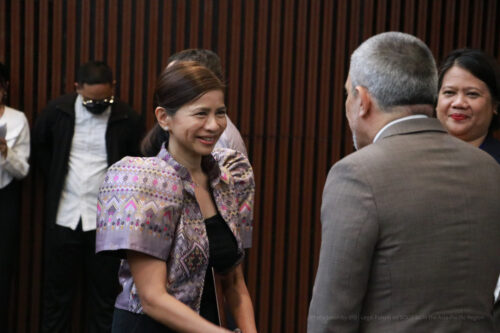
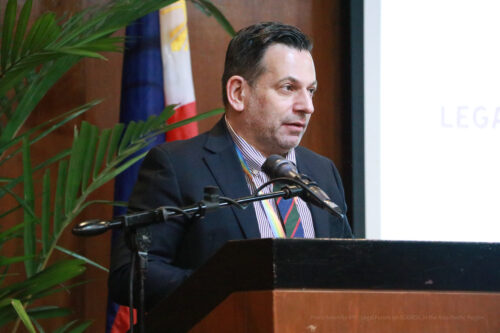
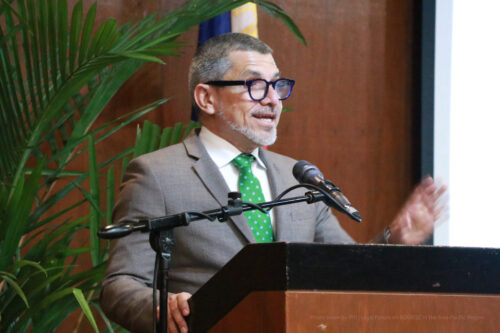
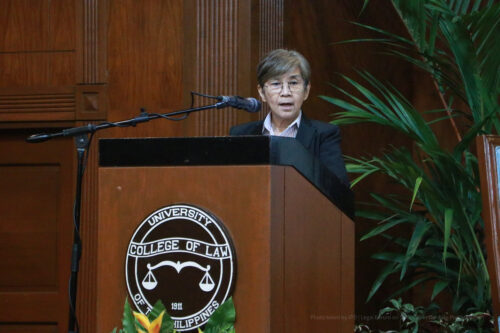
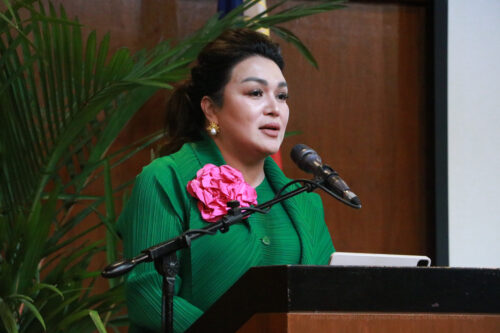
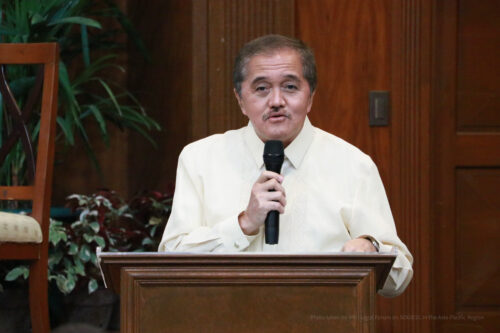
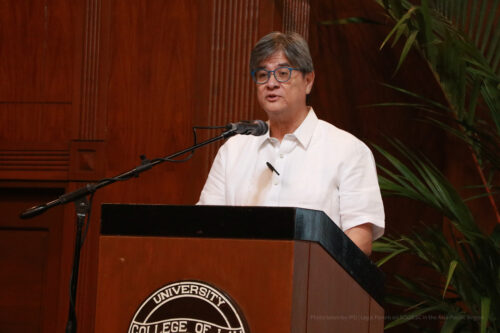
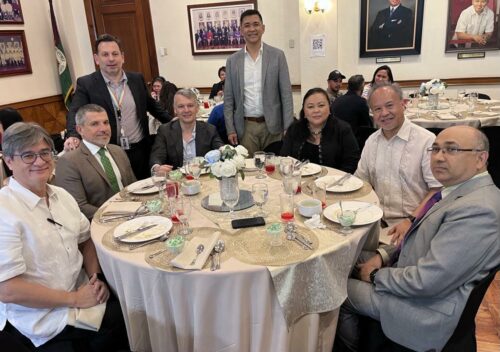






































































































 on the upper right corner to select a video.
on the upper right corner to select a video.